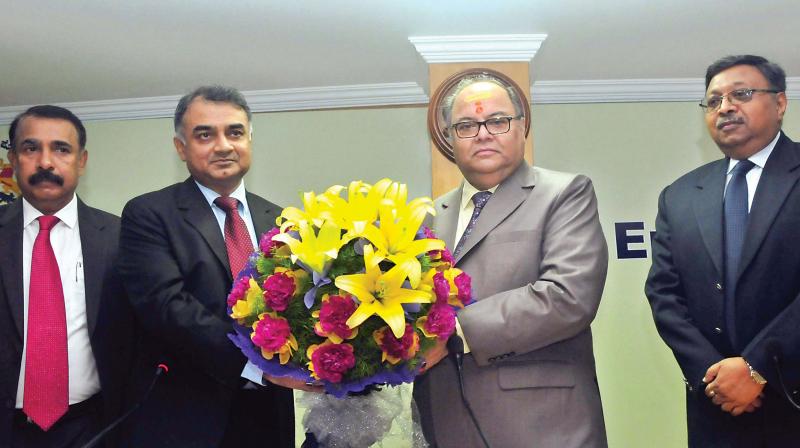Wheels of justice grind slowly in Karnataka: Experts
In Karnataka, average conviction rate is 38.6%, for country 46.9% n Public prosecutors lax: HC Chief Justice.

Bengaluru: Expressing serious concerns regarding low conviction rate in the state, members from police and legal fraternity have called for a proper understanding between the police and prosecutors for a better criminal justice system and improved conviction rate.
During a seminar on “Enhancing the effectiveness of Criminal Justice System” here on Saturday, experts suggested various ways to improve conviction rate, correcting the investigation process and filing chargesheet.
While admitting that the state had low conviction rate owing to delay in trials, Karnataka High Court Chief Justice Justice S.K. Mukherjee said that police, prosecutor, and judge were interlinked in the criminal justice system and thus they need to be more effective in their areas.
“Only after the police files a chargesheet and submit the evidence to the prosecutor the trial begins. To avoid delay in conviction, police need to file chargesheet with solid evidence and the prosecutors should take up the trial with seriousness. The problem with the criminal justice system is that everyone will be serious initially, but by the time the case reaches the court this seriousness is lost,” he observed.
Justice Mukherjee lamented that some public prosecutors have developed laxity towards their profession. He pointed out that though they were good lawyers, they have lost seriousness towards the profession after they became salaried employees. This, he said, had led to a rise in acquittal rates.
He further said that buying of witnesses was a dangerous phenomenon, which was being done by a few lawyers. “One of the major reasons for low conviction rate is that in most cases either the witnesses turn hostile or are purchased. The lawyers seek time for the trial citing the absence of the even one witness related to the case, which delays the trial,” he remarked.
“In a few cases an Forensic Science Lab reports do not come for years and if it comes, the medical officer who attended the case would have been transferred and hence won’t come to the court, making it feasible for the lawyers to ask for a new date,” Justice Mukherjee observed.
Quoting 2015 National Crime Records Bureau data, DG & IGP Rupak Kumar Dutta pointed out that the national average conviction rate was 46.9 per cent, but it was mere 38.6 per cent for the state.
“The pattern of disposal of important cases, comparatively the figures of conviction and acquittal from 2012 onwards are not encouraging,” he said.
He pointed out that among cases handed over to CBI, the conviction percentage was 66-70 percent and said the state lacked that efficiency.
As for delay in conviction due to delayed trials, he said that of 73,000 criminal cases in the state (according to 2015 NCRB data), about 27, 000 were disposed of in less than a year, about 25,000 case took 1-2 years, while about 20,000 cases were disposed in 3-10 years.

